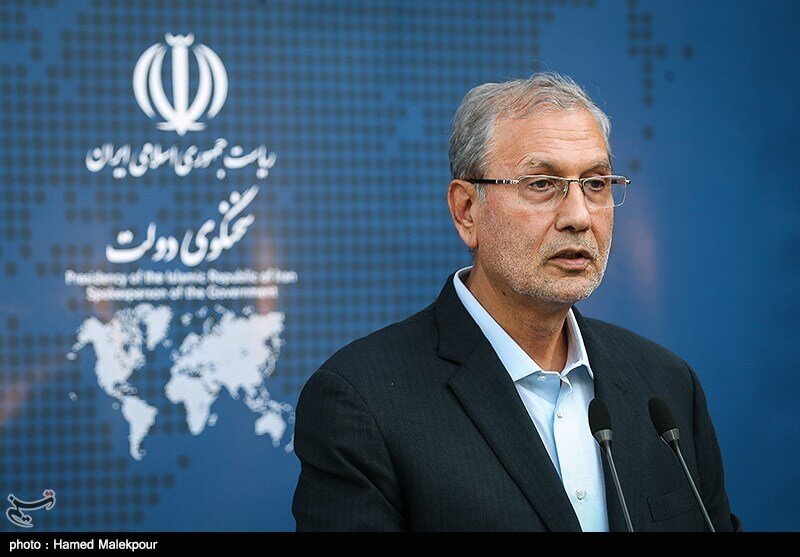Trump will change policy as he sees Iranians’ determination, government predicts

TEHRAN - Iranian government spokesman Ali Rabiei said on Monday that the U.S. exit from “self-inflicted dead-end” requires something more than “enthusiasm”.
U.S. President Donald Trump withdrew Washington from the 2015 nuclear deal in May 218 and restored the previous sanctions against Iran and ordered new ones. Trump has described his government’s sanctions against Iran as an “economic war”.
To strangulate the Iranian economy, Trump has acknowledged that his administration has slapped the “harshest sanctions” against Iran that its kind has never been seen in history.
Rabiei predicted that Trump will definitely become aware of realities in Iran.
“We are sure that the president of the United States will soon find the courage to do what he did not dare to do in New York when he sees the people’s resistance and determination.”
Abbas Araqchi, a top nuclear negotiator and deputy foreign minister, has said Trump’s “maximum pressure” campaign against Iran has produced “maximum resistance”.
Esmaeil Baghaei Hamaneh, Tehran’s ambassador and permanent representative to the UN office in Geneva, has called the consequences of U.S. unilateral sanctions against Iran “crime against humanity”.
During a speech at the 42th session of the UN Human Rights Council on Sunday, he urged the United Nations to take actions in stopping the sanctions.
Top Iranian officials, including President Rouhani and Foreign Minister Zarif, have called U.S. sanctions against Iranian people “economic terrorism”.
Trump has announced that it is ratcheting up economic pressure on Iran to bring officials in Tehran to the negotiating table.
Rabiei said, “As we have said repeatedly, sanctions against Iran are a form of terrorism and no government wants to negotiate with terrorists who are involved in terrorist attack.”
In an interview with CNN aired on September 24, Zarif said that sanctions are war.
“Sanctions are war. Because in a war, usually military targets are chosen. In sanctions, civilians are the targets. So, it’s war. It’s more than war,” the chief diplomat said.
‘Coalition for Hope is not against any country’
The government spokesman also said President Rouhani’s “Coalition for Hope” is an alternative to anti-Iran U.S. Persian Gulf coalition and it is not against any country.
He said Iran’s “Coalition for Hope” or the “Hormuz Peace Endeavor” has three fundamental differences with the U.S. coalition.
“Contrary to the United States’ plan, this initiative sees security in the Persian Gulf internal and not contingent upon extra-regional powers. Iran’s initiative does not leave any country outside of the coalition, because a security structure which remove one or a number of countries cannot create security. Coalition for Hope’s initiative is not against any country and its objective is achieving peace,” he explained.
He said his country is prepared to hold talks about the coalition.
‘Saudi Arabia has sent messages to Rouhani’
The government spokesman also said Saudi Arabia has sent messages to Iran’s president through the leaders of other countries.
“Messages from the Saudis were presented to Hassan Rouhani from the leaders of some countries,” Rabiei said, according to the semi-official ILNA news agency. “If Saudi Arabia is really pursuing a change of behavior, Iran welcomes that,” he added.
Rabiei did not give any information on what the messages contained.
Reportedly, the Iraqi prime minister plans to visit Tehran after his trip to Riyadh for talks with Saudi officials.
Saudi Arabia’s Crown Prince Mohammed Bin Salman said in an interview broadcast on Sunday that he preferred a political solution to settle disputes with Iran.
Saudi Arabia blames Iran for an attack on two Saudi oil facilities on Sept. 14, a charge Tehran denies.
Iran is a fierce critic of the Saudi war against Yemen and has repeatedly called for an immediate halt to the aggression against the Arab state, which according to the United Nations has caused the worst humanitarian crisis in recent history.
NA/PA
